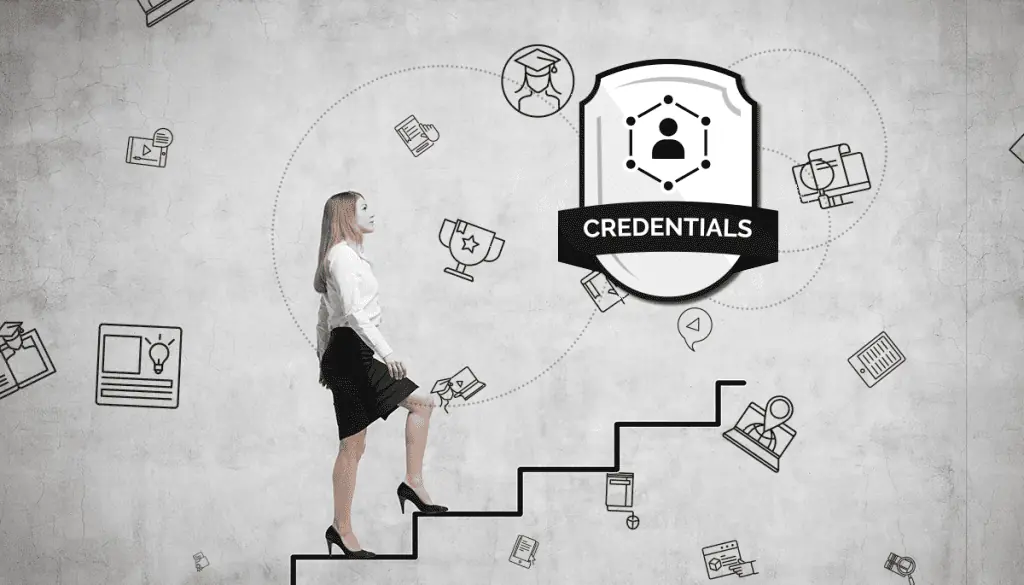In recent years, the rise of micro-credentials has sparked a conversation about the future of education and whether they could replace traditional degrees. Micro-credentials are specialized, short-term qualifications designed to provide individuals with specific skills in a focused study area. Unlike traditional degrees, which often take years to complete and cover a broad range of subjects, micro-credentials are earned by completing targeted learning modules, often through online platforms. As industries rapidly evolve and the demand for specialized skills increases, micro-credentials have emerged as a viable alternative to traditional educational pathways. But are they genuinely replacing degrees, or are they simply complementing them?
What Are Micro-Credentials?
Micro-credentials, sometimes called digital badges, are certifications that signify the mastery of a specific skill or competency. These credentials are typically earned by completing short, intensive learning programs, which may take a few hours or weeks, depending on the subject. Universities, professional organizations, or online learning platforms like Coursera, edX, or Udacity often offer the programs.
Unlike traditional degrees, which require years of study across multiple subjects, micro-credentials allow individuals to focus solely on skills relevant to their career goals. Micro-credentials include certifications in coding languages, project management, digital marketing, data analysis, or even soft skills like communication and leadership. Upon completion, learners receive a certificate or digital badge that can be shared on their resume or LinkedIn profile to demonstrate their proficiency.
The Appeal of Micro-Credentials
There are several reasons why micro-credentials are gaining popularity, both among learners and employers. First and foremost, they provide a way to acquire practical, job-ready skills in a fraction of the time and cost of traditional degrees. For professionals looking to upskill or pivot to a new career, micro-credentials offer an efficient and cost-effective way to demonstrate expertise without committing to the long duration of a degree program.
Another significant advantage of micro-credentials is their flexibility. They can be pursued part-time, online, and at one’s own pace, making them accessible to a wide range of learners, including working professionals, stay-at-home parents, or those in remote locations. Additionally, micro-credentials are often designed in collaboration with industry leaders, ensuring that the skills taught are highly relevant to current job market demands.
Employers also see value in micro-credentials because they provide clear evidence of an individual’s proficiency in specific skills. While still significant, traditional degrees do not always provide insight into a candidate’s practical abilities. In contrast, micro-credentials allow employers to quickly assess whether a potential employee has the skills needed for the job, making the hiring process more efficient.
Are Micro-Credentials Replacing Degrees?
Despite their growing popularity, it is unlikely that micro-credentials will completely replace traditional degrees in the foreseeable future. Degrees, particularly those from accredited universities, are still a gold standard in many professions. They provide a broad education that imparts specialized knowledge and fosters critical thinking, problem-solving, and a well-rounded understanding of various subjects. Many employers continue to value degrees for the prestige they offer and for the foundational knowledge they represent.
However, micro-credentials are certainly complementing degrees in a meaningful way. While a degree provides a general education, micro-credentials allow individuals to specialize in specific skills that are increasingly in demand in today’s rapidly changing job market. Rather than replacing degrees, micro-credentials are enhancing them by offering an additional layer of expertise and allowing learners to demonstrate their mastery in particular areas.
Micro-credentials may sometimes become a stepping stone toward a traditional degree. For example, a student might earn a series of micro-credentials in a particular field and then apply those credits toward a more advanced degree program. This approach allows individuals to gain practical experience and skills before committing to a full degree, making education more modular and flexible.
Challenges and Considerations
While micro-credentials offer many benefits, there are still challenges to their widespread adoption. One key issue is the lack of standardization. Unlike traditional degrees accredited institutions award, micro-credentials vary widely in terms of quality, recognition, and value. As a result, it can be difficult for employers to assess the credibility of different micro-credentials, leading to uncertainty about their true worth.
Additionally, not all industries are equally receptive to micro-credentials. Fields like healthcare, law, and engineering, which require deep, specialized knowledge, still rely heavily on traditional degrees and certifications. In contrast, industries like technology, marketing, and design have been more open to adopting micro-credentials to validate skills.
Conclusion
Micro-credentials are not likely to replace traditional degrees, but they reshape how we think about education and skill development. As job markets evolve and industries demand more specialized skills, micro-credentials provide a valuable tool for individuals to stay competitive and up-to-date. Rather than replacing degrees, micro-credentials complement them, allowing learners to acquire practical skills in less time and at a lower cost. With continued growth and standardization, micro-credentials could play an increasingly important role in the future of education, providing a flexible, efficient, and relevant path to career success.




